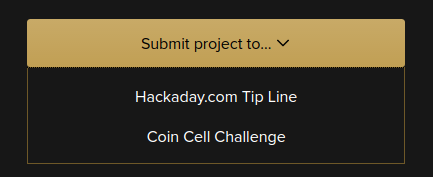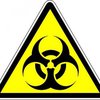Welcome to Hackaday's Repairs You Can Print Contest. We want to see the best repair jobs you've done using 3D printed parts, jigs, or tools.
People often show off trinkets, toys, and baubles that they print, while forgetting to share the real work horse projects: repairs that get the job done. Have you ever printed a replacement part, improved an existing part to provide better functionality, or designed a tool or jig that made a tough repair a snap? We want to hear about it and we have some sweet prizes for those who show off the coolest repair jobs.
Awards:
The top 20 projects will be rewarded with $100 Tindie Credit!
Students and Organizations Can Win Big
We're giving out two amazing 3D printers for the best Student entry and the best Organization entry:
- Best Student Entry: Prusa i3 Mk3 plus the Multimaterial Upgrade
- Best Organization Entry: Prusa i3 Mk3 plus the Multimaterial Upgrade
Each of these prizes is about $1500 in state-of-the-art desktop printing. The multimaterial upgrade lets you print with up to four filaments at once to use different colors or types of filament without any manual changing along the way.
Students must be currently enrolled in school, and be able to prove it if you win. The Organization prize is reserved for educational or social organizations like Hacker Spaces, FIRST Robotics Clubs, tool lending libraries, etc. You must specify in your project that you want to be considered for the Student Prize or for the Organization Prize.
How to Enter
Tell the story of how you've repaired something using 3D printing by documenting it as a new project on Hackaday.io. Once you have published your project, look in the right sidebar for the "Submit project to..." menu in order to enter it in the Repairs You Can Print Contest:

Judging Criteria
- How well did the repair work?
- Was 3D printing a better solution than just buying a part?
- How well is the project documented? Was design of the 3D printed parts explained thoroughly enough to serve as a guide for similar repairs?
- Is the project open source? Could the work be replicated based on the documentation?
- How complete is the entry? Projects don’t have to be complete or working to enter, however those which are finished and working by the deadline may be judged higher.
Repairs You Can Print Contest Rules:
- Contest runs 8AM PST Tuesday, January 16th, 2018 through 12PM PST Tuesday, February 20th, 2018 (here is a handy count down timer).
- Projects must be open source. Source code, schematics, and board layouts for the project software must be either posted in the files section, or include a link to a public repository such as GitHub.
- Existing projects, or projects that were entered in previous Hackaday contests but did not win a prize are eligible for submission as entries in this challenge with the following restrictions:
- A new project page must be created
- The project must be significantly different from when previously entered. Show what makes it unique for this contest.
- All entries will be judged by Hackaday staff.
- Hackaday Staff, Employees of Supplyframe, Judges or the family of any of the preceding are not eligible to take part in this contest. Everyone is still encouraged to build awesome stuff and show it off.
- Eligibility for Best Student Entry: Students 13 years of age or older, who are currently enrolled in school and specify at the top of their project that they are interested in being considered for Best Student Entry are eligible to win.
- Eligibility for Best Organization Entry: Members/Staff/Mentors of educational or social organizations like Hacker Spaces, FIRST Robotics Clubs, tool lending libraries, etc. must have multiple collaborators on their project page and specify at the top of their project that they are interested in being considered...
 Kyra S
Kyra S Brandon Piner
Brandon Piner


Thats great. You have shared it but we missed it due to time shortage and another contest at the same time. Next time our expert team of https://techtheeta.com/best-tablets-under-200/ will definitely participate in it. Because we love to participate in such contest. Because its the source of learning something new.